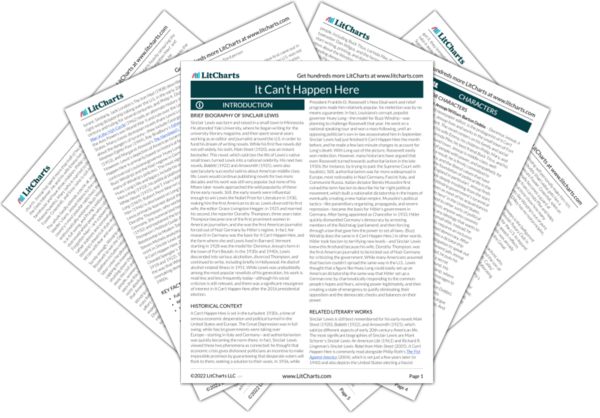In the universities, as in the media, the fascist government replaces critical thought with rigid propaganda. Before, universities taught citizens to think independently about themselves and society, while the news served to help them make wise, informed collective decisions. But now, universities and the media have abandoned these high-minded goals—they merely push for the government’s agenda and chosen narrative. Put differently, rather than fostering free thought and helping people explore multiple perspectives on the world, they now function to suppress free thought by telling people exactly what to believe. Needless to say, both Lewis and his protagonist Doremus Jessup see this as a tragic loss and view freedom of thought, education, and expression as one of liberal democracy’s greatest advantages.


